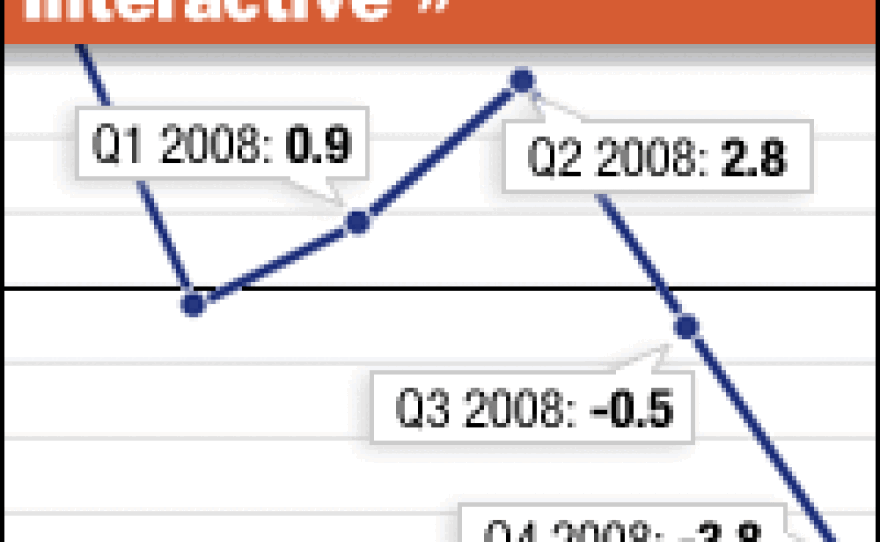The U.S. economy shrank at an annual rate of 3.8 percent in the last three months of 2008 as factory production ground down, department stores slashed prices and virtually every sector of the economy bled jobs, the Commerce Department reported Friday.
The quarterly calculation on gross domestic product was the worst since the first quarter of 1982, when the economy contracted by 6.4 percent amid another recession.
The figure showed how rapidly the economy was contracting. In the previous quarter, the economy slipped 0.5 percent.
For all of 2008, GDP rose 1.3 percent, the slowest growth since 2001, when the economy expanded 0.8 percent. In 2007, the GDP increased by 2 percent.
The Commerce report showed consumer spending — which accounts for a whopping two-thirds of U.S. economic activity — fell another 3.5 percent in the fourth quarter after declining 3.8 percent in the third quarter. Spending on durable goods such as cars and furniture plunged 22.4 percent, the steepest decline since the first quarter of 1987.
The grim quarterly GDP was leavened slightly: It is better than economists expected. Economists surveyed before the report were anticipating a 5.4 percent quarterly drop. However, the figure could be revised lower as new survey data are obtained.
What began as a mortgage and credit crisis that hit financial institutions and the construction industry last year has spread quickly to nearly every sector of the economy, from heavy equipment to electronics and pharmaceuticals.
Consumers have responded by cutting back drastically on spending as they worry about holding onto their jobs, making their mortgage payments, and retaining value in their financial investments.
The latest figures will certainly intensify the debate over the Obama administration's economic stimulus package, which passed the House on Thursday on a strict partisan vote. No Republicans signed on to the plan. The Senate is expected to vote on the plan next week.
Christina Romer, the chair of the White House Council of Economic Advisers, said the latest figures show that "immediate action to support both the financial sector and overall demand is essential."
"Aggressive, well-designed fiscal stimulus is critical to reversing this severe decline and putting the economy on the road to recovery and improved long-term growth," she said.
Earlier this week, a survey released by the National Association for Business Economics, or NABE, pointed to the worst business conditions in more than a quarter century and the likelihood of many more job losses in coming months.
From NPR staff and Associated Press reports.
Copyright 2022 NPR. To see more, visit https://www.npr.org. 9(MDAzMjM2NDYzMDEyMzc1Njk5NjAxNzY3OQ001))






